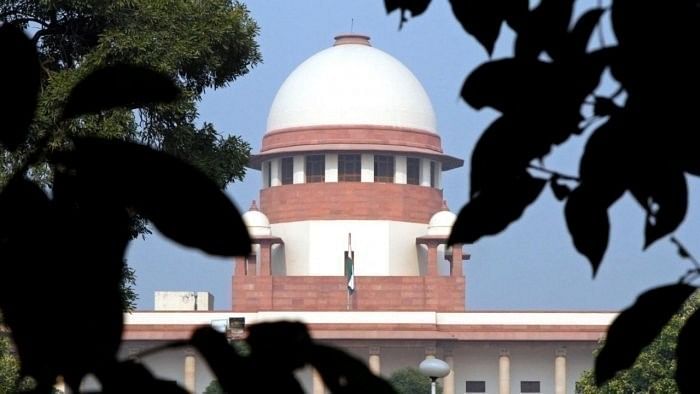
The Supreme Court of India.
Credit: PTI File Photo
By upholding the Constitutional validity of Section 6A of the Citizenship Act, the Supreme Court has settled a longstanding and contentious debate in Assam. The section allows people who came to Assam on or after January 1, 1966, and before March 25, 1971, and are residing in the state, to register as Indian citizens. It was introduced after the Assam Accord was signed in 1985, conceived as part of the agreement to end the anti-foreigners agitation of the 1970s and ’80s. The petitions before the court contended that Section 6A was violative of Articles 14 and 29 because it infringed on the right to equality and the right of the Assamese people to conserve their culture. The court rejected this and said that “challenges regarding the Constitutionality of a statute require the court to take a flexible approach’’ and that the circumstances in Assam justified the section. It said Section 6A was the legislative corollary to the Assam Accord, and the task before the lawmakers was to balance “the humanitarian needs of migrants of Indian origin and its impact on economic and cultural needs of Indian states.”
The ruling and the court’s observations are important in a general sense too. It takes a liberal view of citizenship. The court said citizenship cannot be interpreted ‘’in a negative manner that selectively applies to a particular segment while labelling another faction as illegal migrants.’’ Chief Justice of India D Y Chandrachud, who headed the bench, in his 4-1 majority opinion, specifically said that the Constitutional “right to conserve culture,” must be read in light of the “multi-cultural and plural nation that India is.” Justice Suryakant, quoting Constitutional Assembly debates, noted that fraternity has an inclusive role and the petition had a “restrictive view” which amounted to choosing a neighbour.
The court’s endorsement of the cut-off date of March 25, 1971, and its observations are important in view of the petitions challenging the 2019 Citizenship Amendment Act (CAA), pending before the court. The CAA, introduced as Section 6B of the Citizenship Act, seeks to grant citizenship to a class of migrants—Hindu, Sikh, Buddhist, Jain, Parsi and Christian—who entered India before December 31, 2014, from Pakistan, Afghanistan and Bangladesh. These conditions and qualifications would seem restrictive in view of the court’s endorsement of Section 6A as a secular provision. The cut-off date for citizenship under the Section 6A for Assam is different from the cut-off date for the whole country under the CAA. These issues will have to be addressed when the petitions against the CAA come up before the court. It should also be noted that while upholding Section 6A, the court raised questions about its misuse.